The Writing Life of: Tom Williams
Tom Williams
This week on ‘The Writing Life of:‘ I am thrilled to be interviewing author Tom Williams. Tom will be sharing with us details of his writing life, telling us all about his book ‘Burke in the Land of Silver’, which was released on 27th August 2015, and answering a few fun questions.
So without further ado I’ll hand you over to Tom. Post contains affiliate links.
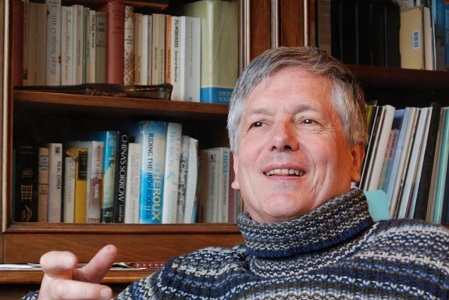
I have been writing about boring things like insurance for most of my adult life, but a trip to Borneo eventually resulted in a novel: ‘The White Rajah’. This told the story of James Brooke of Sarawak, seen through the eyes of his (fictional) lover, John Williamson. One thing led to another and I found myself writing another novel, following John Williamson’s adventures after he left Borneo. The result was ‘Cawnpore’. Historical novels have now become something of a habit and I’m now finishing another book, this time set in Argentina around the time of the Napoleonic wars.
I live in London and when I am not writing, I enjoy skiing, skating, and dancing tango, preferably in Buenos Aires. In between, I have exciting conversations with my bank manager about how this is to be financed. He says he would be very grateful if you bought my books.
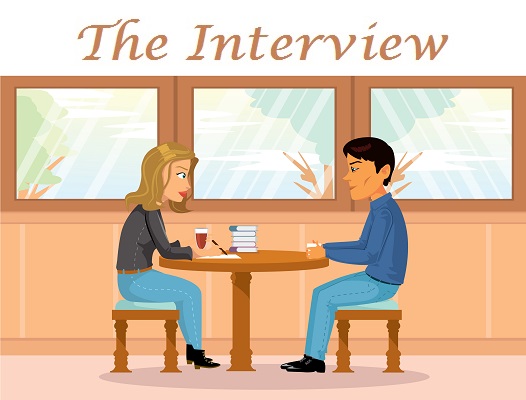
1) As a child what did you want to do when you grew up?
I always thought it would be fun to fly jet fighters, but my eyes weren’t good enough and the whole “being in the air force” bit didn’t really appeal either.
2) Who were your favourite childhood authors?
WE Johns, who wrote the Biggles books about a fighter pilot. (See previous answer)
3) At what point in your life did you realise you wanted to be a writer?
I won some competition for writing when I was about ten, so I guess it must have been pretty early.
4) How did you go about following that dream?
Very, very slowly.
5) What is your writing day like? Do you aim for a certain amount of pages or words before you stop for the day?
In theory I start in the morning and write all day. In practice I fiddle about playing games on the computer, doing housework and doing things like answering these questions until late in the afternoon, and then I panic and write something.
I do aim for a certain number of words these days, though I’m not sure it’s a good idea.
6) Did you ever consider writing under a pseudonym?
No. If I started writing in a completely different genre I might.
7) Do you have any strange habits before starting, or whilst in the midst of writing?
They’re not strange to me.
8) Do you write longhand, typewriter, or on a computer?
On a computer.

Where Tom Writes
9) How many books have you written? Do you have any unpublished work?
Leaving aside non-fiction and things I’ve written during my working life (i.e. things I really got paid for) there are six published novels and one that’s just been finished.
10) Are you a plotter or a pantser?
I write historical fiction based around real people and events, so getting the fiction to fit into the real history means quite elaborate plotting. That said, within the framework I give them, I allow my characters a lot of freedom.
11) Do you read all the reviews left for your book(s)?
Yes I do. I think it’s important. It’s the only real contact you have with your readers and sometimes people do highlight things that I think I should address in books I write in the future.
There are two kinds of negative review: those where people are genuinely highlighting problems they see with the book and those which are written by people who are just being emotional and sometimes appear not entirely balanced.
The first can be quite upsetting because it’s never nice to be criticised, but it’s worth taking them seriously and paying attention because it’s one way of improving. The second can be safely ignored, although some of them are so hilarious they are amongst my favourite ever reviews.
Concerning your book:
His Majesty’s Confidential Agent
Publisher – Accent Press
Pages – 332
Release Date – 27th August 2015
ISBN 13 – 978-1786151377
Format – eboo, paperback, hardcover

A tale of spies and skulduggery in the Napoleonic Wars as Britain invades Argentina.
James Burke joins the army determined to work his way up through the ranks and become a gentleman. He never set out to be a spy. But with Napoleon rampaging through Europe, the Duke of York needs agents and Burke is plucked from the infantry and sent on a mission to the Spanish colonial backwater of Argentina. His mission is to give the country’s freedom fighters aid so that they may break free from Spanish rule at an opportune moment for Britain.
Yet when Burke arrives, he finds himself falling in love, both with the Land of Silver, and Ana O’Gorman, lover of a rebel leader determined to bring about Burke’s downfall …
12) How long did it take you to get from the idea’s stage to your date of publication?
I always struggle to say how long it takes because I’m usually reading around a possible future book while I’m finishing the previous one. Once I’ve decided what the book is going to be about, there can be quite an extended period of research/reading before I write anything. Then the final publication date is not in my own hands. The latest one doesn’t even have a publication date yet.
13) How did you come up with the names for your characters?
I’ve written two book series. The first is about a character named John Williamson.
John Williamson was the real name of a minor character in the real life story around which the first novel was based. My John Williamson was quite different from the real John Williamson, but I stole the name and the job that he was doing.
My James Burke books started with a story (Burke in the Land of Silver) which is very closely based on the real-life adventures of a spy called – wait for it – James Burke.
14) Can you give us an insight into your main character(s) life?, What makes them tick?
The next book is going to be another one about James Burke. Burke is the son of an Irish landowner. He desperately wants to be accepted as a gentleman, which is difficult when you are living in Ireland around the beginning of the 19th century. He decides that his best chance of success is to become a professional soldier, but the War Office ends up making him into a spy.
He resents this (it’s not a job for a gentleman), but it turns out that he is really good at spying. He keeps trying to get back into the regular army, with its opportunities to make money from loot, but he’s never allowed to. He does try to boost his salary with various moneymaking schemes whenever he can – often very successfully.
He’s a terrible snob and loves to mix with aristocrats. He tries very hard to be cynical, but in the end he will always do the right thing by his friends and his country (in that order), even if it means putting himself at risk.
15) Which was your hardest scene to write?
In one of the books of the series (I’m not going to tell you which one because of spoilers) a very important character dies tragically. I cried quite a lot.
16) How did you come up with the title of your book?
The one I’ve just finished currently has a working title of Burke in the Peninsula. That may or may not make it through to publication. All of them start with “Burke”. This one is set in the Peninsular War. I quite like simple descriptive titles.
17) Did you get a family member/friend to read your work before sending to the publishers?
I get my family to read before I send it out to beta readers. My wife does quite a lot of writing in the course of her work, so we are used to reading each other’s stuff critically and we can be very blunt if we don’t think something is working.
I sometimes get a beta reader for the whole book or I might send bits of it to people with specialist knowledge. Burke in the Peninsula features a major battle of the war in Spain and I was lucky to have that read by a Napoleonic re-enactor who was able to correct errors in the detail of how troops behaved in the field.
Everything I write is professionally edited before publication.
18) What process did you go through to get your book published?
All my books to date have been published by Accent Press. They edit them and then I have to go through the edits and make changes and then I have to go through proofs and make corrections. Otherwise most of it is handled by them. That’s the advantage of not self-publishing.
19) What did you do once you had written the final word in your book?
Started planning the next one.
20) What’s next for you, writing-wise?
There are a couple of possibilities: maybe a historical set in Ireland in the late 18th century or possibly a complete break with a modern thriller.
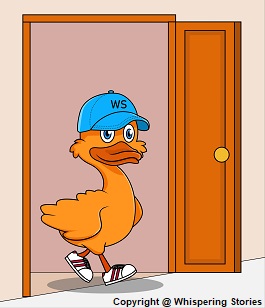
1) What’s your favourite food?
I don’t have a favourite food. There are times that demand macaroni cheese and a cup-a-soup and others when smoked salmon and champagne seems more appropriate.
2) If you had a box of crayons and you could only choose one, which colour would you choose?
Red. I have no idea why.
3) What movie could you watch over and over again?
Anything with Ginger Rogers and Fred Astaire.
4) What would be the top song on your playlist?
According to my computer the song I listened to most is a piano arrangement of a tango called ‘Melodia de Arrabal’. It’s not actually my favourite song, but it’s really easy background music.
5) If you won millions on the lottery, what would be your first purchase?
I don’t play the lottery.
6) A talking duck walks into your room wearing a baseball cap and sunglasses, what’s the first thing he says to you?
“You have to stop eating those mushrooms.”
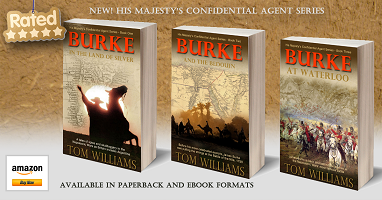
You can find out more about Tom Williams by visiting his website/social media sites below.
www.thewhiterajah.blogspot.co.uk
@TomCW99
Facebook
Goodreads

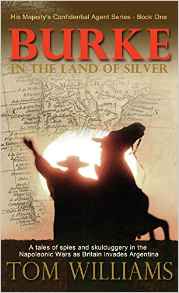
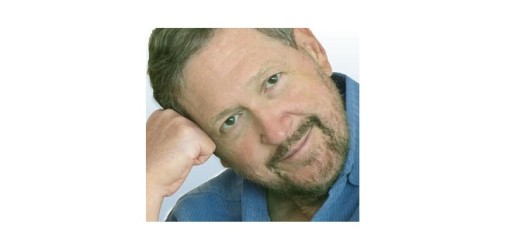
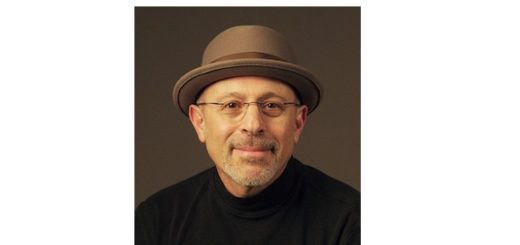
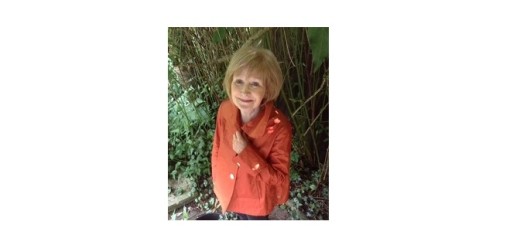

Excellent stuff, chaps – and it works. I now want to read the first Burke book, and will do before too long! I like short, sharp answers like these. Note to self: make interview answers shorter.
Thank you, Terry. I am thrilled to see you liked my interview.
Thank you Terry for your lovely comment about Tom’s interview.